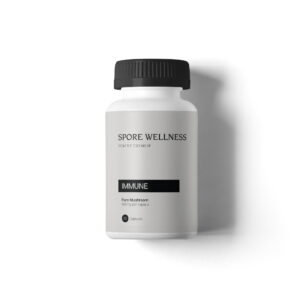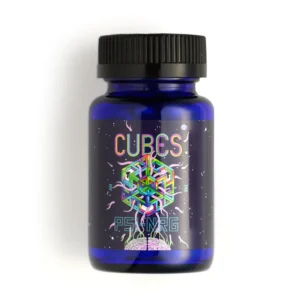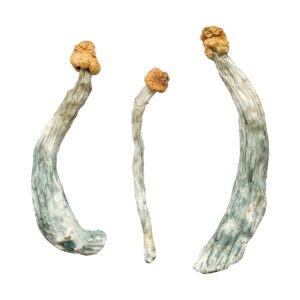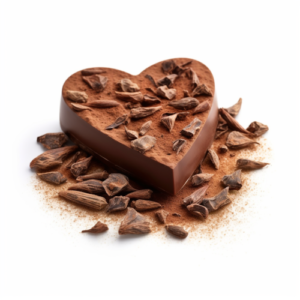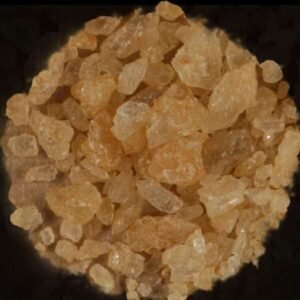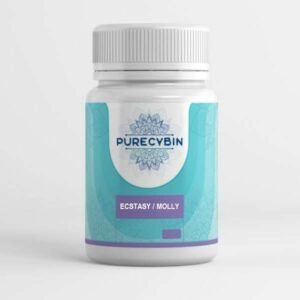MDMA
MDMA: From Party Drug to Breakthrough Therapy
MDMA—known widely as ecstasy or molly—has long been associated with dance floors and music festivals. But in recent years, the narrative has shifted. What was once labeled a party drug is now being studied as a powerful tool for mental health treatment, emotional healing, and trauma recovery.
Thanks to groundbreaking clinical research and changing legislation, -assisted therapy is making its way into mainstream wellness conversations. But what exactly is ecstasy, how does it work, and what are the real benefits and risks?
Let’s dive into the science, experience, and future of this controversial yet promising compound.
What is MDMA?
This stands for 3,4-methylenedioxymethamphetamine—a synthetic psychoactive substance that affects the brain’s serotonin, dopamine, and norepinephrine systems.
It’s best known for producing:
-
✅ Elevated mood and euphoria
-
✅ Enhanced emotional openness
-
✅ Heightened empathy and connection
-
✅ Increased sensory awareness
At recreational doses (typically 80–125mg), users often describe feeling intensely connected, compassionate, and present, which is why MDMA has earned the nickname “the love drug.”
MDMA vs. Molly vs. Ecstasy
While the terms are often used interchangeably, there are some differences:
-
MDMA is the pure chemical compound.
-
Molly refers to a “pure” crystalline form of MDMA, but it can be adulterated.
-
Ecstasy is usually a pressed pill that may contain MDMA plus other substances.
For both therapeutic and recreational use, purity is critical. The safest experiences come from lab-tested, pharmaceutical-grade MDMA, which is now being produced in clinical trials.
How Does It Work in the Brain?
MDMA increases the release of serotonin, the “feel-good” neurotransmitter, while also boosting dopamine and norepinephrine. This chemical cocktail enhances mood, increases energy, and reduces fear—making it easier to revisit traumatic memories without feeling overwhelmed.
That’s why is being hailed as a breakthrough treatment for PTSD and other emotional conditions.
MDMA Therapy: A New Era in Mental Health
In controlled settings, -assisted psychotherapy is showing extraordinary results. Research led by MAPS (Multidisciplinary Association for Psychedelic Studies) has demonstrated that 67% of participants no longer qualified for PTSD after just three MDMA-assisted sessions.
Benefits of MDMA therapy include:
-
Deep emotional processing without retraumatization
-
Breakthroughs in communication and relational healing
-
Reduced anxiety and emotional numbness
-
Long-term improvements in mood and resilience
Therapy is currently in Phase 3 FDA trials and may become legal for clinical use in the U.S. within the next year or two.
MDMA for PTSD, Depression & Beyond
While therapy has focused heavily on post-traumatic stress disorder (PTSD), researchers are also exploring its use for:
-
Social anxiety
-
End-of-life distress
-
Couples therapy
-
Addiction recovery
-
Treatment-resistant depression
It’s not just about “feeling good”—it’s about creating a safe, open mental space where deep healing can occur.
Risks and Side Effects of MDMA
Like any psychoactive substance, carries potential risks, especially when used irresponsibly or in impure forms.
Possible side effects include:
-
Dehydration or overhydration (especially in party settings)
-
Temporary anxiety or insomnia
-
Increased heart rate and blood pressure
-
Post-use “crash” due to serotonin depletion
When used in clinical environments with professional support, these risks are significantly reduced.
Is MDMA Legal?
Currently, MDMA is classified as a Schedule I substance in most countries, meaning it’s illegal for general use. However, due to successful clinical trials, is on track to become a legal medicine in places like the United States, Canada, and Australia for specific therapeutic applications.
In the meantime, ecstasy therapy is available through special programs and clinical trials, with expanding access in the near future.
Final Thoughts: The MDMA Revolution Is Just Beginning
Whether viewed as a tool for trauma healing, a bridge for emotional connection, or a catalyst for personal growth, MDMA is no longer just a party drug—it’s a therapeutic frontier.
As the stigma fades and science steps in, ecstasy is poised to become one of the most transformative mental health breakthroughs of our generation.
For those seeking emotional healing, reconnection, or deep self-awareness, the future of ecstasy therapy is full of promise—and it’s closer than you might think.
Showing all 2 results
-
MDMA (Powder/Crystal) Meth
MDMA $150.00 – $11,800.00Clear1gram2gram3.5gram7gram10 gram14gram20gram50gram100gram -
PURECYBIN-ECSTASY / MOLLY
MDMA $320.00 – $7,100.00Clear35 Pills50 Pills75 Pills100 Pills150 Pills250 Pills500 Pills



